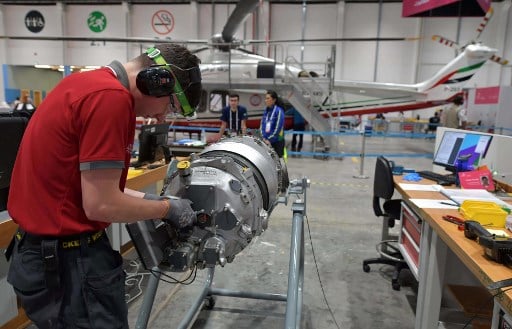The Swiss scooped 20 medals – 11 gold, six silver and three bronze – at the World Skills 2017 event in Abu Dhabi.
It is the best result ever by Swiss competitors, who came second to China.
The 11 gold medals were awarded for cabinet making, autobody repair, health and social care, bakery, IT solutions, heavy vehicle maintenance, electrical installations, industrial control, web design, restaurant service, and plumbing and heating.
Die WorldSkills-Sieger im Kurzporträt: Das sind unsere 12 goldigen Jungen https://t.co/D2dZ8AVSom pic.twitter.com/5y3R0UDQX2
— Blick (@Blickch) October 20, 2017
The Swiss leader, Christine Davatz, told the SDA news agency she was “incredibly proud” of the whole team. The success of the team was “historic, remarkable and suprising”.
Davatz said the competition had increased greatly in the past ten years.
Unlike some other teams from Asia and South America who trained in a focused way for the event, the Swiss side had just practised in their spare time after completing their apprenticeships, she said.
Switzerland’s previous best at the event was 19 medals in 2003.
Thirty-eight young Swiss took part in World Skills, representing 36 trades. In total there were 1,300 participants from 58 countries.
Apprenticeships have a long tradition in Switzerland and are deeply rooted in society and the Swiss education system.
The Swiss apprenticeship system is seen as a model to copy by other countries, including the United States.



 Please whitelist us to continue reading.
Please whitelist us to continue reading.